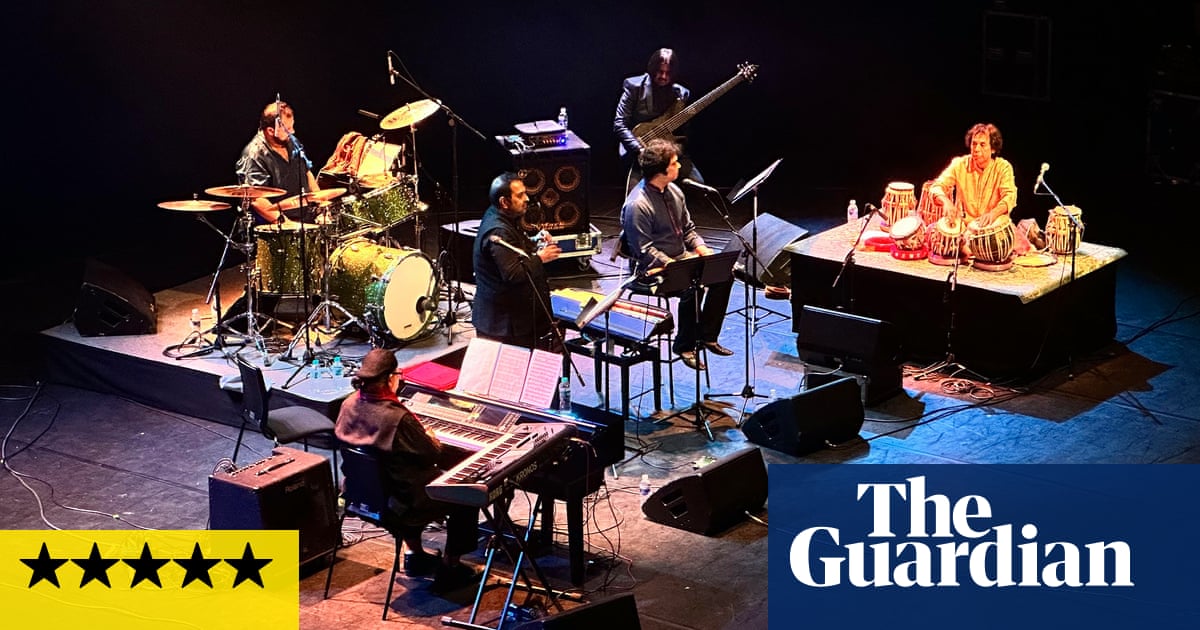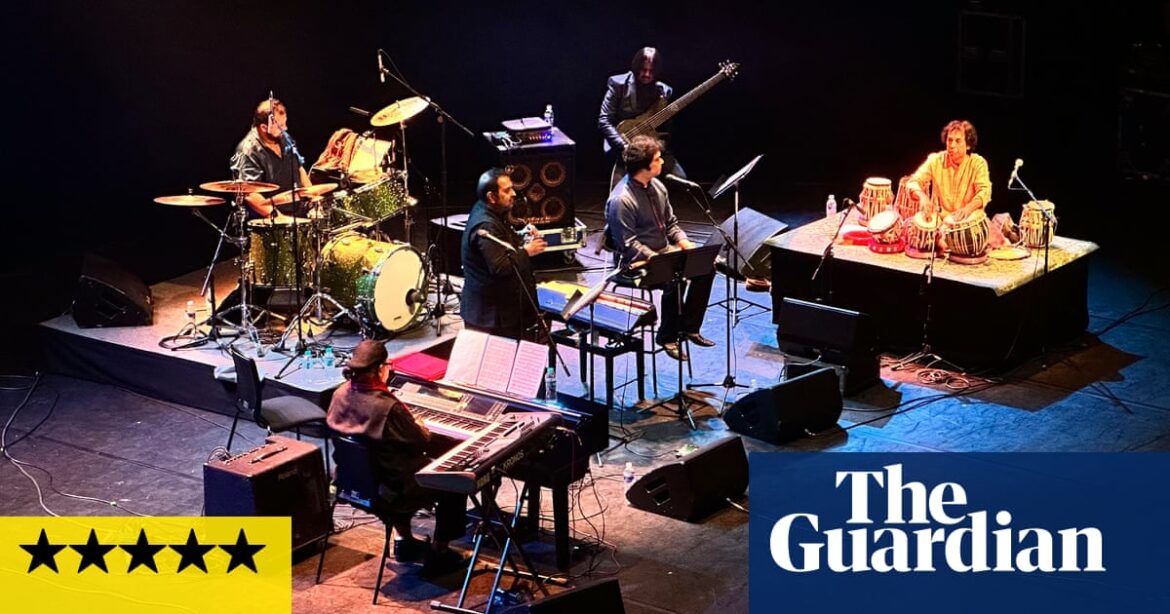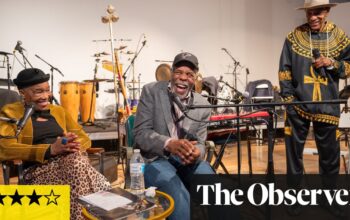
The weight of prodigious talent at this one-off concert, fusing legends from India’s classical and jazz fraternities, hangs heavy in the air. When the instrumentalists take to the stage, bowing with humility, they are met with rapturous applause that tapers into reverent silence. Louiz Banks, the “godfather of Indian jazz”, pierces the ether with three simple keyboard notes. Rakesh Chaurasia’s flute follows, meandering around the space. Ustad Zakir Hussain rubs his palms together, preparing to play his tabla. The microphone picks it up: a small shuffle, with a suspense that is almost Hitchcockian.
Hussain immediately exudes infectious charm, performing with childlike eagerness, but the set list is designed to foreground instrumental ingenuity. Within pieces, the maestros engage in jugalbandi, a call-and-response style improvised duet between two instruments, literally translating as “entwined twins”.
Jugalbandi serves a dual purpose tonight: for one, it foregrounds the musician in a reactive solo. The one from bassist Sheldon D’Silva takes the audience by surprise, and wastes no potential in his instrument: hammering, strumming, even rubbing the six strings. Jugalbandi also encourages connections between instrumental sounds: alongside Banks’s bluesy keyboard refrains, Shankar Mahadevan’s konnakol – a style of vocal percussion – becomes reminiscent of jazz scatting. His vocal control gives each note overwhelming power, even when it’s a hardly present hum.
A jugalbandi between Gino Banks’s drums and Hussain’s tabla is visually striking: the glittery green kit and the barrel-shaped drums on a traditional mat couldn’t be more at odds. But in playful competition, Banks and Hussain bring terrific flair to technical aspects such as drum rolls, harnessing their instruments’ full range of sound to make them sing.
Since its inception, Hindustani classical music juxtaposes the discipline of Carnatic classicism with freedom of innovation and improvisation. As the six maestros demonstrate, this contrast makes the genre uniquely malleable; when Mahadevan intersperses the set list with some familiar favourites (Maa, Eena Meena Deeka and Breathless), you can feel the influence of western blues on Indian contemporary music. And as the band transition seamlessly from a prayer to a jazz-rock refrain, it’s hard to tell where one genre ends and the next begins – or indeed, where one song ends.
As encapsulated when the musicians do what Hussain calls “the exact same all over the world” – tune up their instruments – Maestros in Fusion is a lesson in common spaces: between instruments, genres and cultures. Hussain describes one of his tabla pieces as mimicking the gait of a deer – half-galloping, half-flying – and rooted in rhythm while transported by their virtuosity, the ensemble takes the audience on a similar ride.
Source: theguardian.com



